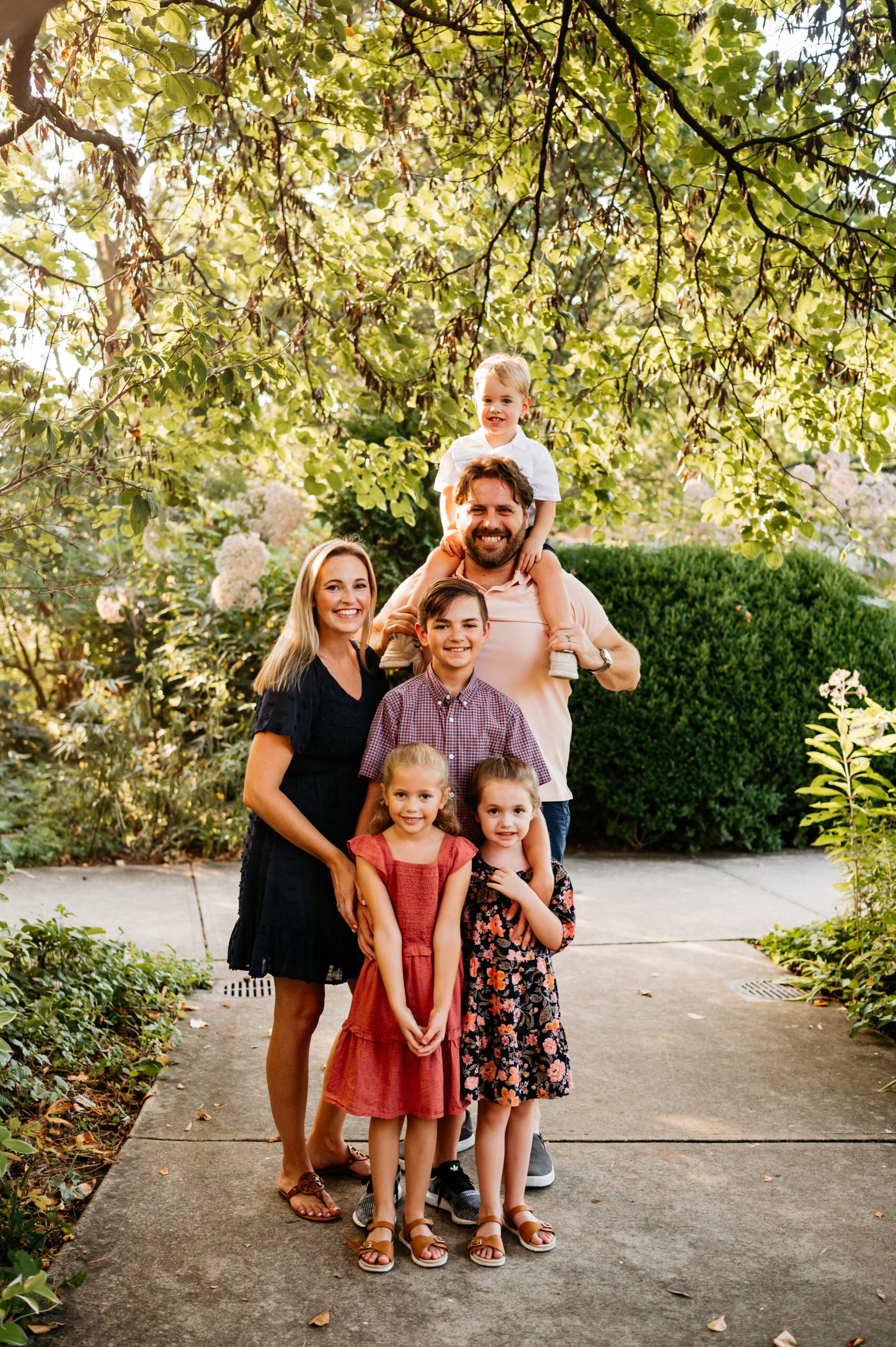Time to talk about our teens! This week on You, The Mother Podcast, I welcomed Elise Knox a connection coach who helps teens and parents navigate challenging transitions with more ease, confidence and better communication. Elise loves to share all of her favorite tips on staying connected to yourself and your teens throughout adolescence. She is all about supporting moms of teens with connection, boundaries, value, confidence, self- leadership and more. In this conversation, Elise walks us through how to build better communication with our teenrs, how to listen to our teens, and how we as mothers also need support during this season of parenting.
How can we stay connected to our teens and better communicate with them throughout the tough teen years?
We have to understand, there are so many things are happening developmentally for teens during this time and one of the main things happening is that they are starting to question their parents. It is a hard transition as a parent to be confronted by someone who thought you hung the moon and now they are questioning everything. Parents need to normalize and understand that this is normal. Also, to stay connected to them you need to focus on self-reflection and understanding why you need to feel right, why you need to get this point across, why you have to have the all of the right answers. So much of parenting through teen years is having to reparent yourself and check in with yourself to figure out why everything is so triggering.
One of the biggest roadblocks in communication between parents and teens is listening. Teens may think they know the answer to everything and another big shift they are experiencing is they do not want you to help them. For the first time, they do not want your opinion or advice but you are so used to doing it because they wanted your opinion for so long. You want to help them and save them from any pain, so when they come to you with a problem you automatically want to go into fix it mommy mode but that isn’t normally what they want.
Elise really encourages parents to get clairity when it comes to communicating with their teen. Ask your teen what they want from you in this moment. Do they want you to support them, do they want your advice or do they want you to just listen?
But as parents, it can be so difficult to listen to our teens, are we unable to do this simple task?
A huge reason that it can be so difficult to just listen to our teens without reacting is that we are recalling our own stories of when we were their age. For example, maybe you had a high school relationship that really changed the trajectory of your life. So now, when you enter into your child’s dating years and you need to listen to the tales of their own high school relationships, you need to do the work to heal yourself so that your trauma response does not effect the way you parent them during this time. You are experiencing the role switch of not being the one to give answers anymore.
Parenting in the past has very much been about controlling of behaivors and power dynamics. If you want your kids to be connected with you and share with you, there also has to be some dynamics of equality and openness.
All of us have a story, a piece of our past childhood that we are bringing into our parenting journey, some more extreme than other. We are in a generation of parents where we are cycle breakers, talking more about intergenerational trauma and how things get passed down, and it is so important for us to be checked in and use self-awareness when we are parenting our children. It is so powerful, and it is so hard. You are navigating your own experiences and feelings that are real and validated and being able to hold space for yourself and allowing yourself to be a better version and give your child the mom that they need, is very difficult. It is so valuable to talk to your kid about the things that have happened in your past and repair whatever happened so that your child sees that you are a human who makes mistakes and it is okay to make mistakes and you can go and repair your mistakes.
During the teen years we almost shift from being a parent to a coach- we are still the leader but it evolves into more of a mentorship, walking alongside them, communicating differently, giving advice here and there, but letting them take more of the reigns.
So, how can we listen to our teens without judgement?
If you can understand brain development from childhood to teenage years, it can help to understand your child’s thought process. Children are very much egocentric in the fact that the world revolves around them, they are unable to problem solve, they think of one way and they can get their needs met. Now teens on the other hand are starting to have perspective, which is part of the good aspect of brain development. They can now have bigger ideas and give back to community AND they also are having thoughts of I should be able to go to that party, I should be able to drive my friends around, all of the things that parents feel really scary. If you can understand the positive things that happen in their brain, it can be easier to understand how they are making decisions and choices.
It is so important to check yourself and your own energy when it comes to listening and communicating with your teen. If your teen is coming to you with something and you are not in a clean energy space, ask for a bit of time before you respond so that you are not just reacting.
To communicate effectively when your teen is coming to you with big asks, take a deep breath and connect to yourself, before you respond. Take a few minutes to think about it if need be. You are constantly checking in to yourself so that you can be settled and calm rather than coming from a super activated place.
I asked Elise about some ways to prevent being reactive with your child.
She said to focus on regulating activity more than just in that moment with your teen. If the only time you are focusing on regulating is in that moment, it is not going to go over very well because you are already activated. Think of calming, regulating activities like a muscle you need to strengthen. Have moments of regulation throughout your day because if you are already stressed out about 5 other things, your window of tolerance is very tiny. You need to manage so many areas of your life and is is important to be more calm, more present and have more space when something comes up so you don’t immediately go to patterns of reacting negatively towards your child.
Are there ways moms can get support throughout the isolating teen years?
It can be so helpful to find a therapist, a coach, or a good friend with whom you can honestly and authentically share what is going on in your life. A huge benefit to having a therapist or a coach is that you can show up as you, share as you and you don’t worry about what anyone thinks. When you have teens, there is more space in your life than in those busy toddler years, but this space can be taken up by worrying about them, running them around to all of their events and then using the little time you do have but not doing things that fill up your cup and rather things that deplete you. It is very important to be intentional about the extra time that you do have and find something that is YOUR thing. We become so enmeshed in our kids and we can lose ourselves. Those tiny years can be so physically grueling but those teen years can really be mentally exhausting. It is so important for moms to find an outlet outside of motherhood to not feel so stuck.
Tips for when we are having a challenge with our teens: how can we better communicate so we are not stuck in these angsty power struggles?
Elise recommends non-violent communication, whcih is a four-part process that you do on your own before having a hard conversation.
Part 1 – making an observation, this is the hardest part to do because you have to make an observation as if you were recorded with a camera so without your own judgement or opinions.
Part 2 – discover what you are feeling
Part 3 – ask yourself, what is the unmet need under the feeling?
Part 4 – to make a request
When you run yourself through this process on your own, sometimes you realize you can meet your own needs. It is such an empowered place to come from because not only are you realizing your unmet needs, you can also understand someone else’s unmet needs.
This process helps you to understand your needs and also understand how you share your feelings and needs with others. While going through this process you may uncover that sharing your needs actually comes across quite accusatory or defensive and therefore may not be received well. As a parent, going through this process on your own can help you to better learn how to communicate with your teen in a way that they want to receive.
Communicating with teens is an ongoing journey that will uncover different versions of yourself. It is so important to remain in a good, healthy headspace when it comes to communicating with your teen. Remember to have outlets for yourself outside of motherhood so when you get into the hard moments, you can show back up exactly the way you wish to be for both you and your child.
You can find more support on this topic over on Elise Knox’s Instagram or on her website where you can reach out to work with her!
Supporting You, The Mother,
Abbey Williams, MSW, LSW




